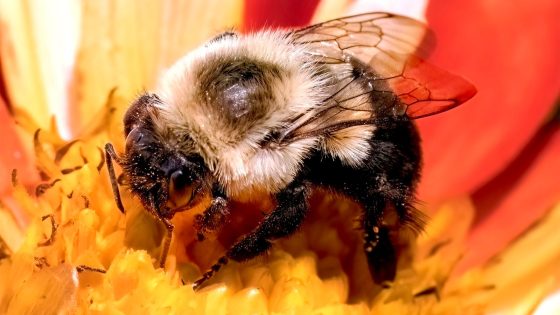At least one bumblebee species can survive underwater, scientists have found after a mishap led to an experiment.
A study by researchers in Canada has found when hibernating, common eastern bumblebee queens can survive being submerged in water for a week with no apparent issues.
Research began after Dr Sabrina Rondeau, of the University of Guelph in Ontario, made a mistake during a previous experiment.
After storing a shipment of 300 hibernating common eastern bumblebee queens in a refrigerator, she later found condensation had filled four containers housing the insects.
“I was sure that the queens were dead,” Dr Rondeau told The Globe and Mail, a Canadian news outlet.
“I removed the water and – surprise, surprise – they were still alive.”
In the follow-up study, Dr Rondeau and her colleague Professor Nigel Raine took 143 of the queens and housed them in individual plastic tubes containing damp topsoil, before putting them in a dark refrigerated unit to induce hibernation.
After seeing the bees were still alive, the researchers kept 17 queens as controls and added cold water to the remaining 126 tubes.
Of these, 63 queens were left floating on top of the water, and the other 63 were pushed under the water by a plunger.
Both sets were then split into thirds, with one group left for eight hours, one left for 24 hours, and one left for seven days.
The team found 81% of the queens that were submerged for seven days were still alive after eight weeks of artificial hibernation, compared with 88% of the control group.
The researchers found survival of the queens remained consistently high across all experimental groups up to eight weeks post-treatment.
Read more from Sky News
Marine worm with ‘googly eyes’ may see differently
Pandas’ diets may be sabotaging their sex lives
However, the team added in the peer-reviewed journal Biology Letters that queens with a higher weight had a greater chance of survival.
Dr Rondeau told The Globe and Mail: “One-third of all bumblebee species around the world are in decline right now, and so if we are able to discard flooding as being a potential threat to bees, then we can focus our attention on other threats that we know for sure are harming them.”
Source Agencies




